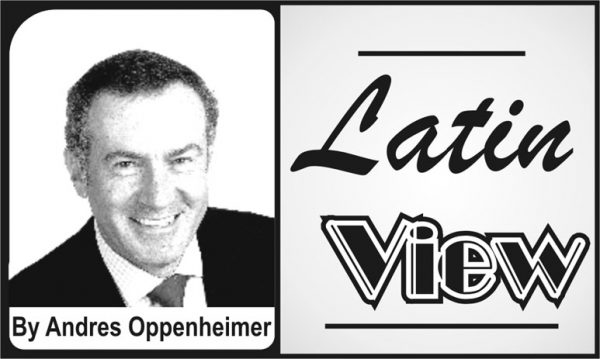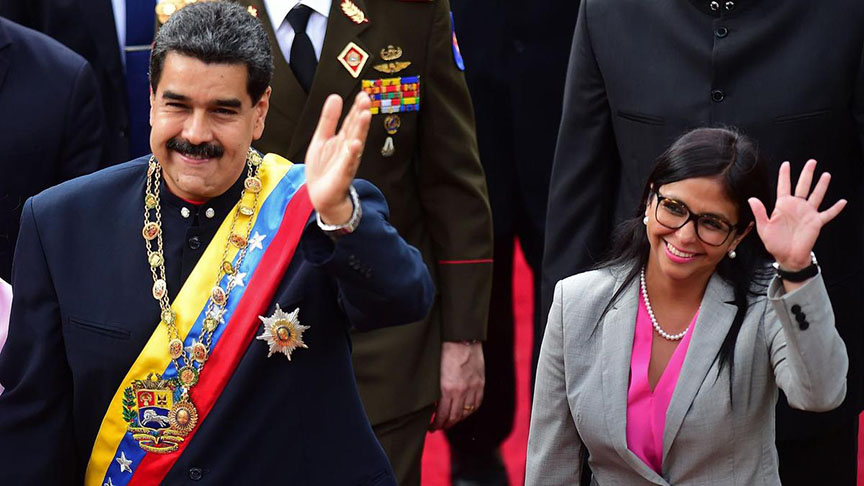
Colombian President Ivan Duque told the daily El Tiempo last weekend that, following up on his country’s decision not to recognize the results of Venezuela’s fraudulent May 20 elections, “We are not going to go through the charade of maintaining diplomatic relations” with Venezuela after Maduro’s current term expires.
Similarly, Chilean President Sebastian Piñera told me in a recent interview that since most of the 14 Latin American countries that make up the Group of Lima did not recognize the results of Venezuela’s elections, “We do not recognize the president who emerged from that election, and we will not recognize Maduro as president of Venezuela.”
Venezuelan opposition sources tell me that they expect at least 46 countries — including most members of the Group of Lima and the 28-member European Union — to downgrade or sever diplomatic ties with Venezuela. Simultaneously, Colombia and four other South American countries are lobbying European countries to join their unprecedented joint petition to the International Criminal Court to launch an investigation into Maduro for alleged crimes against humanity. And the United States is reportedly preparing to add Venezuela to its list of nations sponsoring terrorism.
The big question is whether there will be any practical consequences of a formal decision by these countries to cut ties with Venezuela. Even Colombia and Chile say that while they will formally announce a severance of diplomatic ties with Venezuela, they will maintain consulates and other diplomatic missions there.
“It will be an odd break of diplomatic ties, because we will maintain a diplomatic representation in Venezuela,” a senior Latin American diplomat told me this week. “It may be largely a symbolic gesture for now, but it could lead to stronger measures in the future.”
For instance, a formal decision to no longer accept Maduro’s legitimacy as president could set the stage for countries to later recognize a parallel “legitimate Venezuelan government” led by the opposition.
Some Venezuelan exile leaders are lobbying the Trump administration and those of other countries to simultaneously cut diplomatic ties with Maduro and recognize a caretaker opposition-led government.
Their plan would go like this: Since Maduro and his vice president, Delcy Rodríguez, would no longer be considered legitimate leaders once their current terms expire, there would be a power vacuum. The next in line of succession would be the head of the opposition-controlled National Assembly.
Venezuela’s National Assembly was democratically elected in 2015 and is the last remaining democratic institution in Venezuela. Maduro stripped the Assembly of most of its powers and created a new Congress to rubber-stamp his decisions. But the international community could recognize the National Assembly’s president as Venezuela’s legitimate leader while new elections are convened, supporters of that plan say.
“The most important thing is not that countries stop recognizing Maduro as a legitimate president, but that they recognize an opposition-led legitimate government,” one opposition leader told me.
But many countries would be reluctant to go that route for fear of opening a diplomatic can of worms. Latin American diplomats ask: How would we justify having diplomatic ties with Cuba, which has not had a free election in more than five decades, while severing ties with Venezuela over this year’s fraudulent elections?
In addition, some diplomats note that, unlike last year, when more than 150 people died in Venezuela’s street protests, — there is no sense of urgency in the diplomatic community today that would justify taking such extreme measures.
For now, the likely decision by many countries to stop recognizing Maduro as a legitimate president will be a mostly symbolic announcement.
But if the opposition takes to the streets in January — as some anti-government parties are planning — to protest Maduro’s inauguration and the country’s humanitarian crisis, things could change. There would be a legal base for the next step — international recognition of a provisional opposition government.





